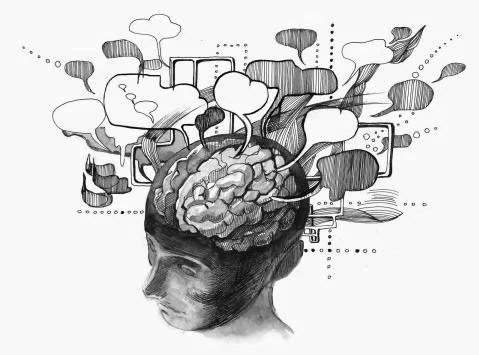Understanding High-Functioning Anxiety: Indicators and Ways to Find Relief
“You look fine on the outside, but inside, you’re always on the edge.” This is a common feeling among those with high-functioning anxiety—a unique type of anxiety that often goes unnoticed. While many experience it as a constant hum of unease, others manage their daily lives almost seamlessly, despite the ever-present undercurrent of worry.
In this post, we’ll explore what high-functioning anxiety is, its signs, and how to effectively address it.
what is High-Functioning Anxiety?
High-functioning anxiety is a bit of a paradox. Those who experience it often appear composed, organized, and successful, but beneath the surface, they’re continually managing internal stress and tension. This “silent anxiety” doesn’t necessarily hinder daily responsibilities; in fact, it might even fuel achievements. However, the chronic worry and need for control can take a toll on mental and physical health over time.
Anxiety is a mental health condition that can be tricky to diagnose. It can be difficult to identify and can significantly impact everyday life, jeopardizing one's physical, emotional, and cognitive health. As a result, it is vital to recognize the signs and symptoms of high-functioning anxiety, as well as management options.
key Indicators of High-Functioning Anxiety
Overachievement and Perfectionism: High-functioning anxiety often drives people to excel, yet the motivation stems from a deep fear of failure. The relentless quest for perfection can lead to chronic stress and burnout, while unreasonably high expectations cause even small setbacks feel overwhelming.
Overthinking: Replaying past conversations or events, obsessing over future outcomes, and worrying excessively about “what ifs” are all common in high-functioning anxiety.
Self-Critical Thinking: Individuals experiencing high-functioning anxiety typically engage in excessive self-doubt. The internal dialogue may be harsh and unforgiving, instilling feelings of inadequacy and self-doubt.
Difficulty Relaxing: For peroplw with high-functioning anxiety, relaxation feels out of reach. Even during downtime, there’s a sense of guilt or a need to “do more.” Activities meant to recharge become yet another item on the to-do list
Sleep Deprivation: The most common physical indication of high-functioning anxiety is difficulty sleeping or insufficient sleep. Many people with high-functioning anxiety find they can’t turn their minds off at night and are kept up by racing thoughts. Others awaken in the middle of the night, overwhelmed with ideas.
People-Pleasing Behavior: The fear of disappointing others often leads people with high-functioning anxiety to work to meet others’ expectations, even at the expense of what’s best for them.
Difficulty Saying No: Despite an overloaded schedule, saying “No” often feels impossible. Many people with high-functioning anxiety take on additional responsibilities out of fear of letting others down.
Practical Tips for Managing High-Functioning Anxiety
Recognizing these signs is a great first step. Here are actionable tips for managing high-functioning anxiety:
Create a Self-Care Routine: Regular, intentional self-care practices can be powerful. This can include activities like journaling, which helps clear the mind, or breathwork to manage physiological responses to stress. Experiment to see what works best for you.
Use Grounding Techniques: Grounding techniques, like somatic therapy and Deep Brain Reorienting, are effective for reconnecting with the body and managing the nervous system. Techniques such as these help soothe the body’s fight-or-flight response, aiding relaxation and focus.
Set Boundaries with Yourself and Others: Learn to say no when necessary and give yourself permission to let go of tasks that don’t add value to your well-being. Boundaries help create a sustainable work-life balance, which can alleviate stress.
Challenge Perfectionist Thoughts: Notice when perfectionism takes over and try to reframe these thoughts. Remind yourself that it’s okay to have limits, and that others aren’t as critical as you may think.
Practice Mindfulness and Presence: Being present is a skill that can help reduce anxiety over things beyond your control. Mindfulness practices, like meditation or simply taking a few deep breaths, allow you to stay grounded and lessen the pull of anxious thoughts.
Approaches to Treat High-Functioning Anxiety
High-functioning anxiety doesn’t have to remain a silent struggle. Several therapeutic methods are effective for those looking to address their anxiety at the root:
Internal Family Systems (IFS): This therapeutic approach aids in identifying and understanding the different “parts” of oneself that contribute to anxiety.
Eye Movement Desensitization and Reprocessing (EMDR): Particularly effective for anxiety and PTSD, EMDR can help process past traumas that may be contributing to chronic worry.
Somatic Therapy: By focusing on physical sensations and responses, somatic therapy helps connect the mind and body, reducing the lingering effects of trauma and stress.
Deep Brain Reorienting (DBR): An emerging approach, DBR works with the brain’s response patterns to shift ingrained anxiety responses, supporting long-term relief.
These methods are backed by research and offer tailored solutions for those experiencing anxiety, trauma, and even depression. Each of these approaches not only treats symptoms but helps address the underlying causes of anxiety, creating a foundation for lasting peace.
Choose Peace Over Perfection
High-functioning anxiety can feel isolating, but support is available. Therapy provides tools to manage the anxiety effectively and develop a healthier approach to life’s challenges. Remember, you’re not alone on this journey, and it’s possible to live a balanced life free from the constant need to “do it all.”
If you’re ready to explore therapy options, reach out today. Our team offers compassionate, science-backed approaches like EMDR, Somatic therapy, Internal Family Systems, and Deep Brain Reorienting to help you feel grounded, confident, and free from chronic worry.
Let’s start a path toward relief—together.
Looking for More?
If you’re interested in learning more about Mind-Body Approaches, we have lots of information to geek out on! You might enjoy:







